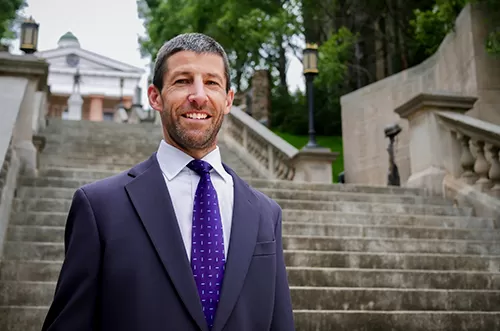Johnston v. Stephan, 2017 Va. Cir. LEXIS 309 (Cir. Ct. Fairfax Cnty. Oct. 23, 2017)
The Stephans owned real property in Great Falls, Virginia, and hired a general contractor to construct a home on the property. On February 15, 2010, the general contractor and Cole (“Defendant”) entered into a subcontract pursuant to which Defendant installed a roof on the home. Three years later, the Johnstons (“Plaintiffs”) purchased the home form the Stephans. In January 2014, Plaintiffs demanded that Defendant perform further work on the roof, and Defendant declined. On April 5, 2017, Plaintiffs sued Defendant, alleging that Defendant’s refusal to work on the roof violated consumer protection law and breached an alleged contractual warranty.
Defendant argues first that Plaintiffs fail to state a claim for breach of contractual warranty in violation of the Virginia Consumer Protection Act (“VCPA”) due to that fact that there is no privity of contract between Plaintiffs and Defendant. Plaintiffs had relied on the subcontract between defendant and the general contractor of which Plaintiffs were not parties and so had no right to enforce its terms. Furthermore, the subcontract had not contained any warranties, only that Defendant install the roof in a manner that would not void a third party’s warranty on the roof.
The court found that Plaintiff’s complaint failed to allege that there was privity of contract or that they were alternatively an intended third party beneficiary of the contract. Furthermore, they did not provide facts to support their argument that any warranty under contract is transferable. The court further held that contractors who purchase materials for a construction project on a house do not fall under the definition “consumer transaction” as referenced in the VCPA. Such contractors are commercial entities, purchasing goods form another commercial entity for commercial purposes. The Defendant in this case, as a subcontractor, provided a service to the general contractor which was for mere business purposes. Therefore, Defendant was an improper party to this claim.
The court then acknowledged that Code § 59.1-200 prohibits various practices, including the misrepresentation by a supplier in connection with a consumer transaction. Allegations of misrepresentation of fact must include the elements of fraud. The court found that Plaintiffs had not adequately alleged that Defendant misrepresented a material fact or that Defendant knowingly made a misrepresentation.
Defendant also contended that Plaintiffs’ claim was barred by the statute of limitation under the VCPA, which requires a claim to be brought within two years after accrual. While the court concluded that Plaintiffs’ complaint was barred due to its filing outside of the two-year limitation period, it determined that a defense based on the statute of limitations may not be set up by demurrer. The defense should rather be made by a Plea in Bar.




